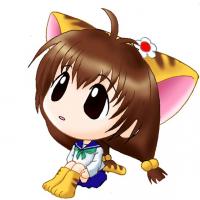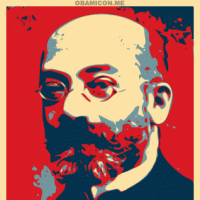Съобщения: 8
Език: English
mvk20 (Покажи профила) 12 октомври 2007, 15:45:02
Thanks!
erinja (Покажи профила) 12 октомври 2007, 16:34:35
This doesn't contain English translations but in most cases you can figure out which English name matches to the Esperanto version (if any).
Some common English names will be found in dictionaries and you can look them up that way. For names of well-known historical figures, you can look them up in the English Wikipedia, then see if there's an Esperanto entry for the same person, that you can pull the Esperanto name from.
This page may also be useful. It lists Esperanto names, although whoever wrote the page clearly made up some random names and added them to the list, and spelled them with the h-system (hh = ĥ, ch = ĉ, u = u or ŭ, etc). I doubt very many people would name their daughter Pipra but the list has some normal names too:
http://www.behindthename.com/nmc/esp.php
Also this page:
http://www.esperanto-chicago.org/nomoj.htm
It has some Esperanto versions of well-known names, and also the author's personal opinion of how to Esperantize some of the new-fangled names that are popular in the US today.
And just to beat a dead horse, here's someone else's long list of their personal opinion on how to translate names (with origins in lots of languages):
http://www.geocities.com/valamer/
Note that everyone pretty much agrees on Esperanto versions of classic names that already have many international variations (Petro, Johano, Vilhelmo, etc). There will be more doubt with some newer or less international names.
Betka (Покажи профила) 12 октомври 2007, 17:48:58
 I think I'll just stick with Alzbeta.
I think I'll just stick with Alzbeta. It's a wonderful resource though, some of the names are great (Tajlora, Suzana, Napoelono).
erinja (Покажи профила) 12 октомври 2007, 18:22:05
But call yourself whatever you want. There is no requirement to 'Esperantize' your name. People will call you whatever you tell them to call you. A hint - keep it easy to pronounce, whatever you choose. People from all different countries will be trying to say your name, so be nice to them!
Don't be like the David Jordan story about "Knaĥoĥŝveŭpsceg"!

mvk20 (Покажи профила) 12 октомври 2007, 18:23:26
Thanks again so much for all of the help!
Frakseno (Покажи профила) 18 октомври 2007, 15:36:21
On the other hand, it seems that making Mary into "Maria" is simply changing the name to something generically "foreign" (i.e. Spanish or Italian) rather than changing it out of any real Esperanto need.
erinja (Покажи профила) 18 октомври 2007, 20:48:26
But the use of the -a ending is also old in Esperanto, and I don't see its use as necessarily a bad thing (obviously, if you look at my name), and I don't see it as necessarily "foreign". I just see it as another valid Esperanto option for womens' names.
mnlg (Покажи профила) 18 октомври 2007, 23:38:22






